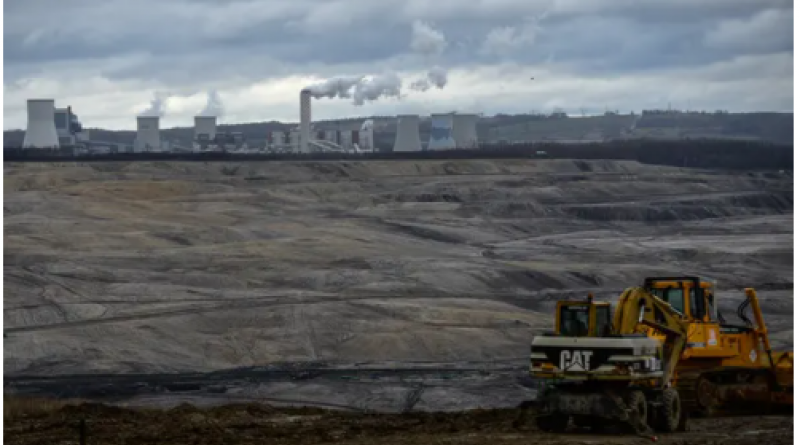Poland defies EU court by refusing to close major brown coalmine.

Shutting Turów lignite mine would cause thousands of job losses, says development minister.
Poland’s government has defied an injunction by the top European Union court that ordered the immediate closure of a major brown coalmine, with officials saying it would shake the nation’s energy system and lead to the loss of thousands of jobs.
The country’s development minister, Jarosław Gowin, said Poland would not shut the lignite mine in Turów, on the border with Germany and the Czech Republic, but instead was engaged in “very intensive diplomatic and law-related efforts” to secure undisturbed operation of the mine and connected power plant that generates 7% of Poland‘s energy.
The EU’s court of justice on Friday ordered Poland to immediately stop operation of the mine, heeding Prague’s complaints that it drained groundwater from Czech territory and that Poland recently extended its licence without proper prior environmental assessment. It is a temporary measure, pending the court’s full ruling.
Gowin said he considered the court’s decision “scandalously incommensurate” to the situation and that it would lead to the “loss of tens of thousands of jobs and very serious disturbances in Poland’s energy system”, cutting power to millions of households.
The Polish prime minister, Mateusz Morawiecki, said Poland would engage in negotiations with Prague and would also make new points before the EU court to clearly describe the situation and avoid a “disaster”.
On Monday, he met his Czech counterpart, Andrej Babiš, before the EU summit in Brussels to discuss solutions to the spat.
Morawiecki told reporters in Poland that the court’s decision was “very dangerous from the point of view of potential threats to the ecology, but it is also dangerous for Poland’s energy security and for the employment of some 5,000 people” working at Turów.
He noted that the Czech Republic and Germany were operating lignite mines and power plants close to Poland’s borders.
The Czech environment minister, Richard Brabec, said senior Czech and Polish government representatives and other officials were already meeting to discuss the Turów situation.
“At the moment, we are introducing our ideas and proposals about what we would like the Polish side to do or what it should offer to us,” he said. “We’re ready to negotiate. We’ve said so for several years.”
“We’ve never received any clear written guarantees about how Poland would compensate the negative impact [the mine] has on the Czech citizens,” Brabec said.
In an effort to follow the EU’s ambitious carbon dioxide reduction goals, Poland is gradually phasing out its main fuel, black coal, but still relies on lignite. Critics says the departure from coal and the introduction of clean energy is much too slow.
A recent energy plan said the last coalmine would be shut by 2049, but critics say it will happen sooner, because Poland’s coal production is inefficient and generates enormous costs that are covered by the state budget.
The EU wants at least 32% participation of renewable sources in the 27-nation bloc’s electricity generation by 2030, but Poland’s plan aims at 23% participation of green energy, and still up to 56% participation of coal in its energy mix.
Coal makes up 65% of Poland’s energy sources, including 17% from lignite, while about 25% of the country’s energy comes from renewable sources and biofuels. Another 10% comes from gas and other sources.
Poland’s continuing heavy reliance on coal is a source of tension in the EU, which is seeking to meet ambitious goals to reduce the bloc’s greenhouse gas emissions and stop global heating.
May 2021
The Guardian




